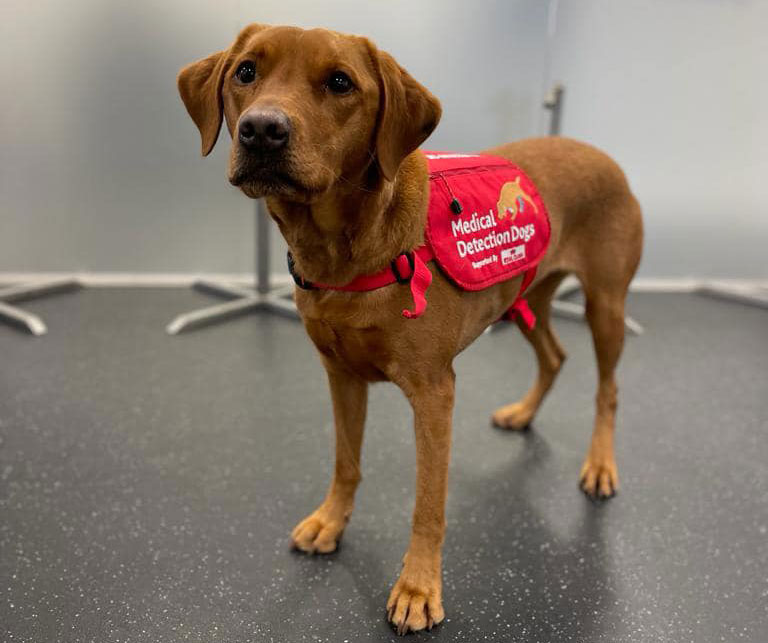Following the success of our prostate cancer project, we have been asked to look at how dogs could provide more information about the odour of colorectal cancer and 2024 marks the start of our colorectal cancer study in partnership with Hull and East Yorkshire Hospitals NHS Trust. Colorectal cancer is the fourth most common form of cancer in the UK and the overall survival rate for bowel cancer is in the region of 60%. Many of those who are not cured present with advanced disease – a reflection of how hard it can be to make a diagnosis.
Due to the invasive nature of the colonoscopy screening process, only just over half of those offered will take it up. The non-invasive faecal screening lacks sensitivity and often still results in the need for a colonoscopy. We are aiming to use urine samples over faecal samples as there is less stigma around supplying these. This would mean any resultant diagnostic test would be more accessible and more people would likely present for screening. It may also be useful in monitoring treatment response and will help scientists identify the tumour specific compounds the dogs are sniffing which can then be targeted in diagnostic laboratory tests.
We believe that information learned from our dogs about its odour could help deliver an accurate, rapid and non-invasive test for early diagnosis that would be offered to clinicians to use alongside existing diagnostic methods.

